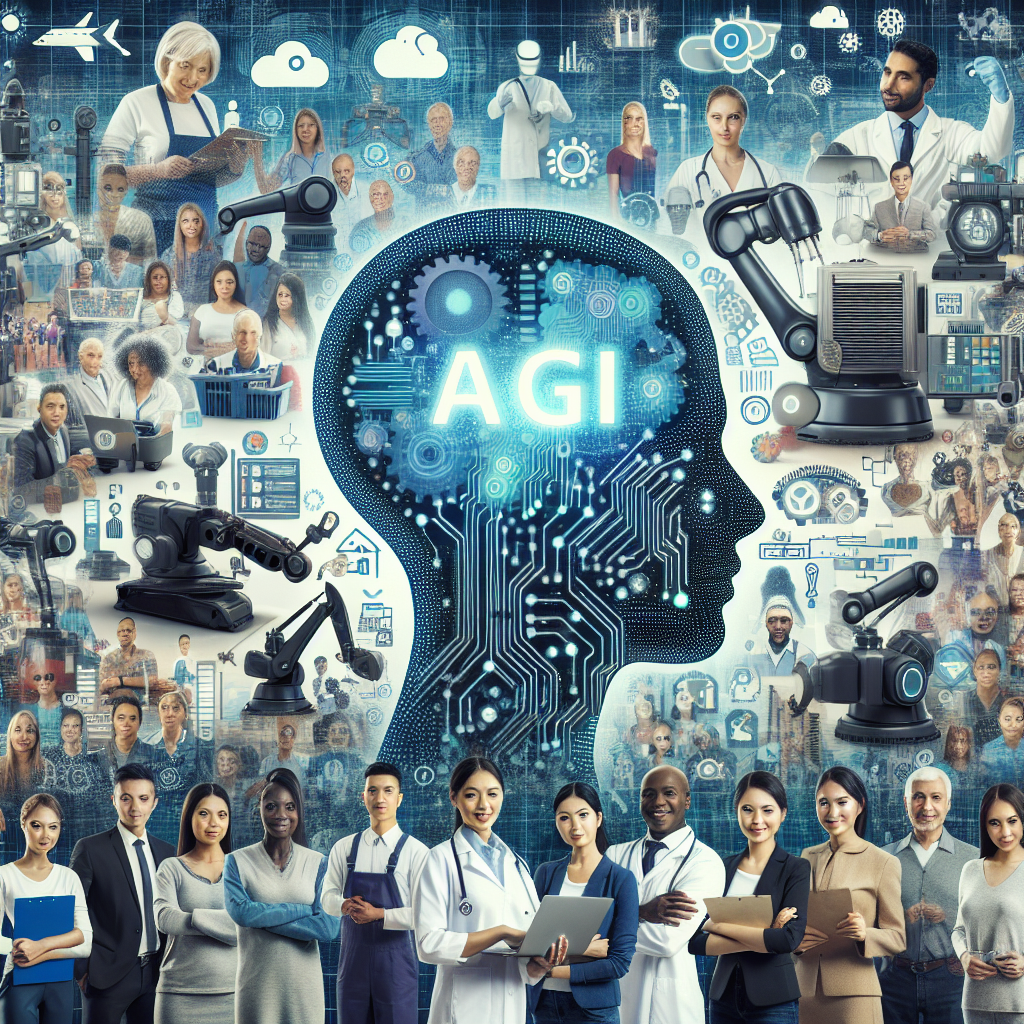Artificial General Intelligence (AGI) has been a topic of fascination and speculation for decades. The idea of a machine that can perform any intellectual task that a human can do has captivated the minds of scientists, engineers, and futurists alike. While AGI is still largely a theoretical concept, recent advancements in artificial intelligence (AI) have brought us closer than ever to realizing this vision.
In the workplace, AGI has the potential to revolutionize industries and job markets in ways we can only begin to imagine. From automating routine tasks to augmenting human decision-making, AGI has the power to transform the way we work and live. In this article, we will explore the impact of AGI on various industries and job markets, as well as address common questions and concerns surrounding this emerging technology.
AGI in the Workplace: A Game-Changer for Industries
AGI has the potential to revolutionize industries across the board, from healthcare to finance to transportation. By automating routine tasks and augmenting human decision-making, AGI can increase efficiency, improve accuracy, and drive innovation in ways that were previously unimaginable.
In the healthcare industry, for example, AGI can help doctors diagnose diseases, recommend treatment plans, and monitor patient outcomes with unprecedented accuracy and speed. By analyzing vast amounts of medical data and identifying patterns that human doctors may overlook, AGI can help save lives and improve patient outcomes.
In the finance industry, AGI can help traders make better investment decisions, detect fraud, and manage risks more effectively. By analyzing market trends, economic data, and other relevant information, AGI can help investors maximize their returns and minimize their losses.
In the transportation industry, AGI can help autonomous vehicles navigate complex environments, avoid accidents, and optimize routes in real-time. By integrating AGI into self-driving cars, trucks, and drones, we can create a safer, more efficient transportation system that reduces congestion, emissions, and travel times.
AGI in the Workplace: A Shift in Job Markets
While AGI has the potential to revolutionize industries, it also raises concerns about the future of work and the impact on job markets. As machines become increasingly capable of performing cognitive tasks that were once reserved for humans, many fear that jobs will be lost and workers will be displaced.
While it is true that AGI may lead to job displacement in certain industries, it is also likely to create new opportunities and demand for workers with specialized skills. As machines take over routine tasks, humans will be freed up to focus on higher-level tasks that require creativity, empathy, and critical thinking.
For example, in the healthcare industry, AGI can help doctors diagnose diseases and recommend treatment plans, but it cannot replace the human touch and empathy that patients value. Nurses, therapists, and other healthcare professionals who provide emotional support and personalized care will continue to be in demand, even as machines take on more routine tasks.
In the finance industry, AGI can help traders make better investment decisions and manage risks, but it cannot replace the human judgment and intuition that are essential for success. Financial analysts, advisors, and other professionals who can interpret data, communicate complex ideas, and build relationships with clients will continue to be valued in a world increasingly driven by AI.
In the transportation industry, AGI can help autonomous vehicles navigate complex environments and optimize routes, but it cannot replace the human drivers and operators who are needed to handle unexpected situations and emergencies. Truck drivers, pilots, and other transportation professionals who can respond to changing conditions, ensure passenger safety, and provide excellent customer service will continue to play a vital role in a world of AI-driven transportation.
FAQs about AGI in the Workplace
Q: Will AGI replace human workers in all industries?
A: While AGI has the potential to automate routine tasks and augment human decision-making in many industries, it is unlikely to replace human workers entirely. Machines and humans have complementary strengths and weaknesses, and the most successful organizations will be those that can leverage both effectively.
Q: Will AGI lead to job displacement and unemployment?
A: While AGI may lead to job displacement in certain industries, it is also likely to create new opportunities and demand for workers with specialized skills. As machines take on routine tasks, humans will be freed up to focus on higher-level tasks that require creativity, empathy, and critical thinking.
Q: How can workers prepare for the rise of AGI in the workplace?
A: Workers can prepare for the rise of AGI in the workplace by developing skills that are difficult for machines to replicate, such as creativity, empathy, critical thinking, and problem-solving. By focusing on skills that are uniquely human, workers can position themselves for success in a world increasingly driven by AI.
Q: What are the ethical implications of AGI in the workplace?
A: The rise of AGI in the workplace raises important ethical questions about privacy, security, bias, and inequality. Organizations must be mindful of these issues and develop policies and practices that ensure fair treatment, transparency, and accountability in the use of AI technologies.
In conclusion, AGI has the potential to revolutionize industries and job markets in ways we can only begin to imagine. By automating routine tasks, augmenting human decision-making, and driving innovation, AGI can help create a more efficient, productive, and inclusive workplace. While AGI may lead to job displacement in certain industries, it is also likely to create new opportunities and demand for workers with specialized skills. By preparing for the rise of AGI in the workplace, workers can position themselves for success in a world increasingly driven by AI.

